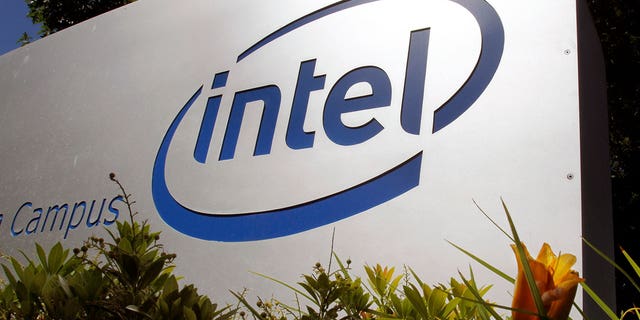Republicans split on major China bill, as legislation barrels toward passage
Republicans are split on a major bill aimed at boosting the U.S. semiconductor industry, with some alleging that the legislation reeks of corporate welfare and others arguing it’s key to helping the U.S. compete with China.
The legislation cleared a procedural vote 64-34 Tuesday night, with 16 Senate Republicans voting for it.
The base of the bill is $52 billion in funding for the U.S. semiconductor industry, which makes computer chips that power everything from cars to smartphones. But it’s also growing, with many other provisions being added related to competing with China on research, intellectual property and more – and the bill is on pace to possibly exceed $200 billion.
Those who support it say it will be a boon for U.S. competition with China, while Republicans opposed to it say the bill will be counterproductive to that goal.
SEMICONDUCTOR CHIP BILL PART OF CONGRESS’ ‘FLURRY OF BIPARTISAN ACTIVITY’: AXIOS REPORTER
“Tonight’s procedural vote is an important first step toward the Senate passing a robust ‘CHIPS Plus’ package,” Rep. Todd Young, R-Ind., who was the driving GOP force behind the legislation for months, tweeted Tuesday. “The strong bipartisan vote shows there is broad support for including the USICA provisions critical to our national security and ability to outcompete China.”
“The latest version of Chuck Schumer’s fake China bill would boost inflation and despite Democrat’s claims, much of those taxpayer dollars will end up funding semiconductor factories in communist China, not at home,” Republican Study Committee Chairman Rep. Jim Banks, R-Ind., said.
Heritage Action Vice President Garrett Bess said in an interview with Fox News Digital Wednesday that the bill lacks proper oversight for the funding and will benefit major semiconductor manufacturers the most.
“While we’re open to a productive industrial policy discussion, these — this so-called set of solutions weakens our domestic economy by adding to inflation and spending without providing… proper transparency, oversight,” he said. “It is really just a blend of corporate welfare and industrial policy posing as a China policy bill.”

US ‘SHOULD BE CONCERNED’ BY CHINESE INFLUENCE IN LATIN AMERICA: MILITARY COMMANDER
Bess said that semiconductor companies have spent massive sums of money lobbying Congress on this bill. CNBC reported that three of the companies set to benefit from the bill the most are Intel, Texas Instruments and Micron Technology.
According to lobbying disclosures posted by the nonprofit OpenSecrets, Texas Instruments spent 21% more lobbying Congress in the first quarter of this year than it did in last year’s first quarter. Meanwhile, Intel spent more in the first quarter of 2022 than it has in any quarter since 2014. Micron Technologies, meanwhile, spent more on lobbying in the first quarter than it has in any quarter since 2005, according to OpenSecrets.
Bess also noted that Intel delayed opening a chip factory in Ohio, citing congressional delays in passing a bill to fund domestic chip production. He said that amounts to “blackmail.”
But a Republican aide whose senator voted to advance the package said the moment of U.S.-China competition on the world stage is too big not to try to act.
“We’re looking to strengthen the bill so that it will help us win the race against China and in turn reinforce our national and economic security in a time when America needs to reassert itself on the world stage,” the aide said.

SENATE POISED FOR VOTE ON SEMICONDUCTOR BILL AFTER MANCHIN AGAIN SHRINKS DEMS’ RECONCILIATION PACKAGE
Multiple Republican senators who support the semiconductor legislation Wednesday also shared a tweet thread from American Compass Executive Director Oren Cass, pushing back on a Wall Street Journal editorial opposing the bill.
“The WSJ editorial laments ‘subsidizing highly profitable companies that don’t need the help,’” Cass wrote. “But the issue isn’t profitability, it’s incentives at the margin for investment in domestic production. The editors may only care about profits, America has other concerns.”
Rep. Ro Khanna, D-Calif., a progressive Democrat who’s worked on semiconductor legislation for months, also said corporate welfare concerns are overblown, and that the bill’s benefits outweigh the costs.
“This bill will create thousands of jobs across the country and has strong guardrails in place to ensure the funds go directly towards opening factories in the U.S, not stock buybacks or payments of dividends,” he said. “Just look at Intel — the company is expected to create three thousand new company jobs, seven thousand construction jobs, and tens of thousands of additional jobs for suppliers and companies in Ohio. And that’s just one company. But all these jobs are at risk if Republicans block the CHIPS Act.”
Khanna also said Republicans who support former President Donald Trump’s agenda should support investments like this.
“This is bringing back production to America,” he said. “The ‘make America great’ folks should be all for this. I mean, do we want to make these semiconductor chips in America, or do we want China to lead?”
The timetable for the bill passing the Senate remains unclear, although it’s possible the bill will pass this week or next week. A Senate GOP aide told Fox News that it’s not totally clear exactly what provisions will be in the final version of the bill. Some of that is still in the works with Senate Majority Leader Chuck Schumer, D-N.Y., the GOP aide said.
A version filed by Schumer Tuesday includes money for NASA, the National Science Foundation, nuclear research and more.
House Speaker Nancy Pelosi, D-Calif., said Wednesday that after the Senate passes the bill, she is “optimistic that the House will be able to take this bill up as early as next week.”
Read the full article Here


